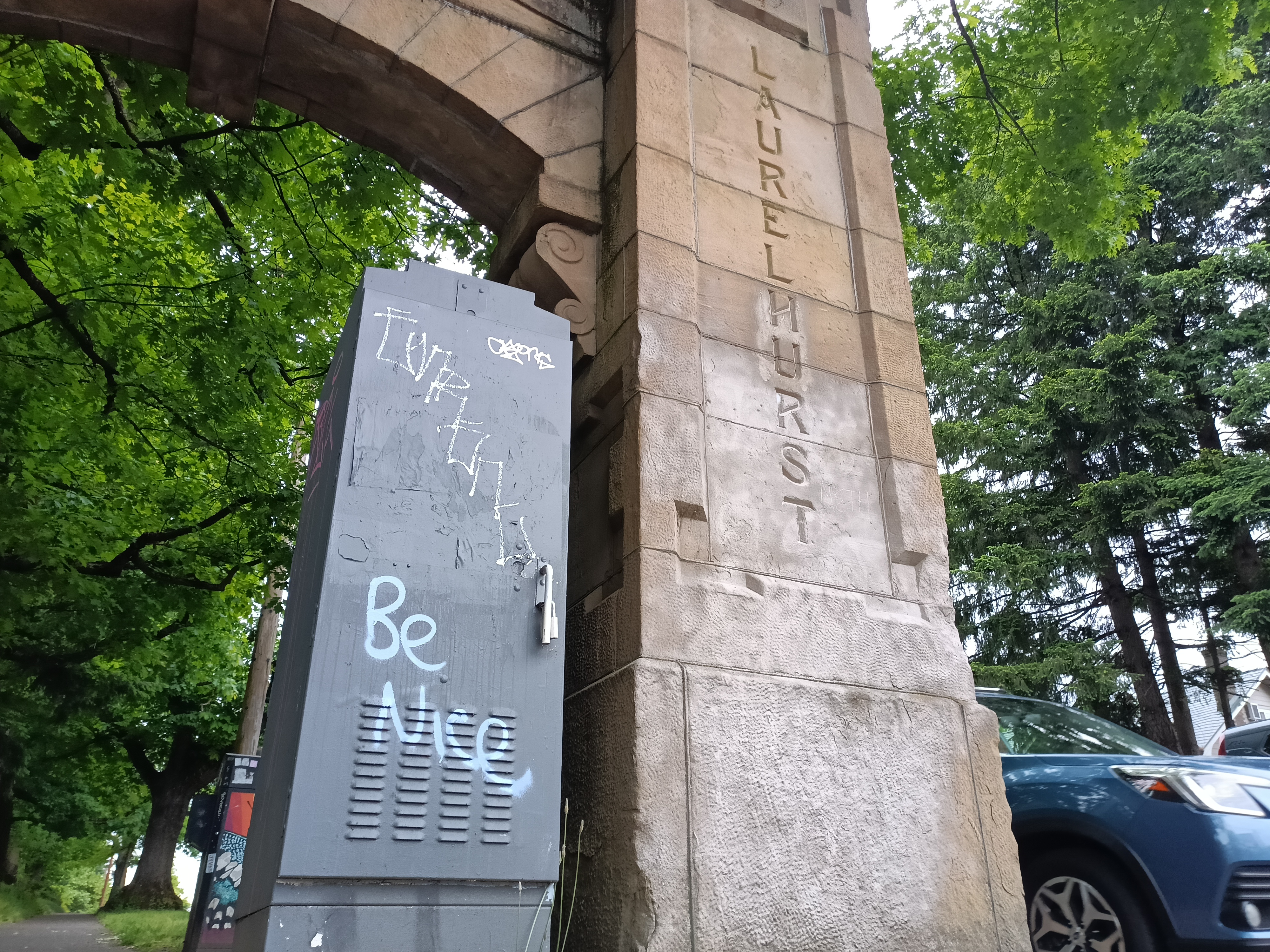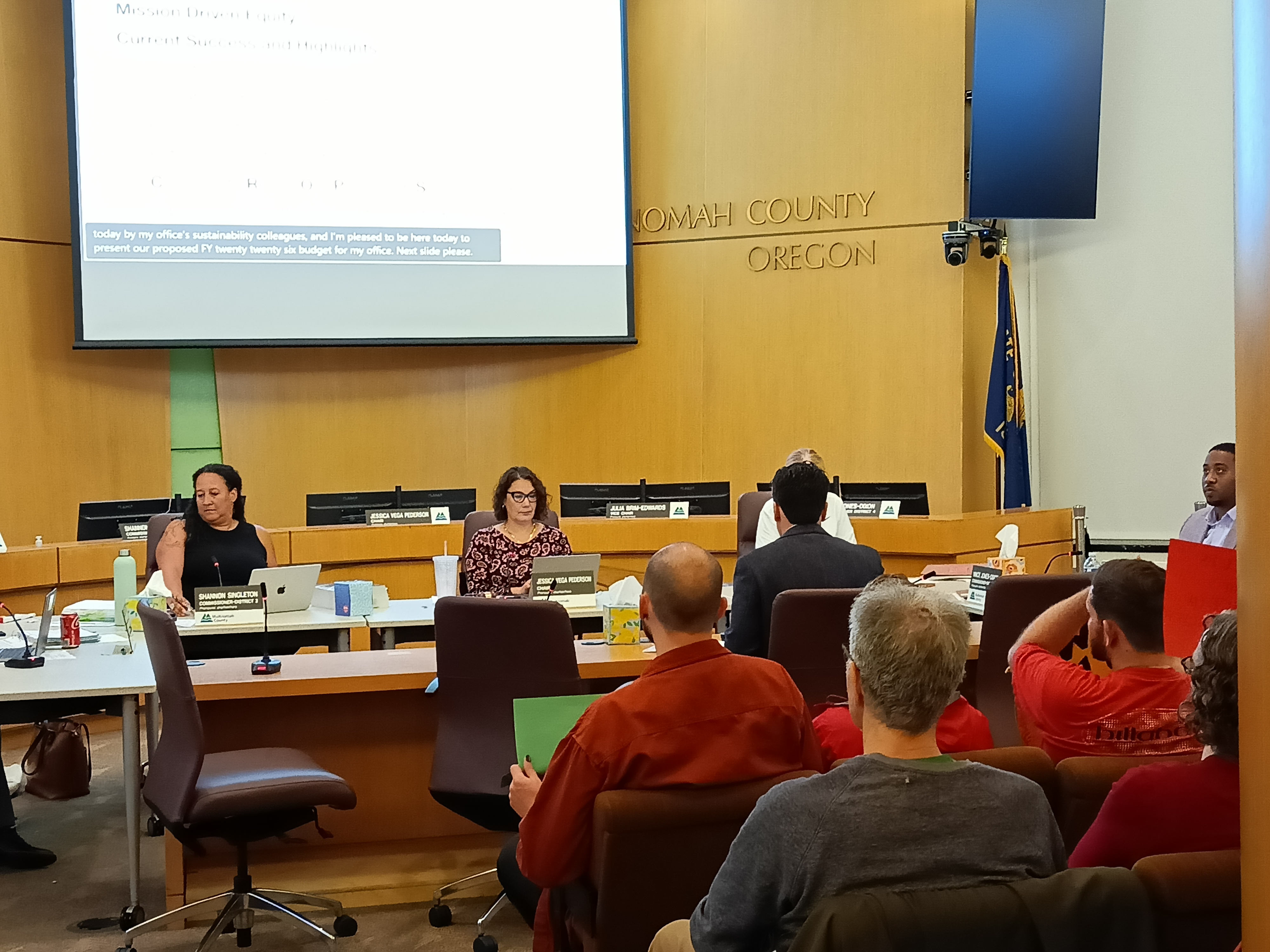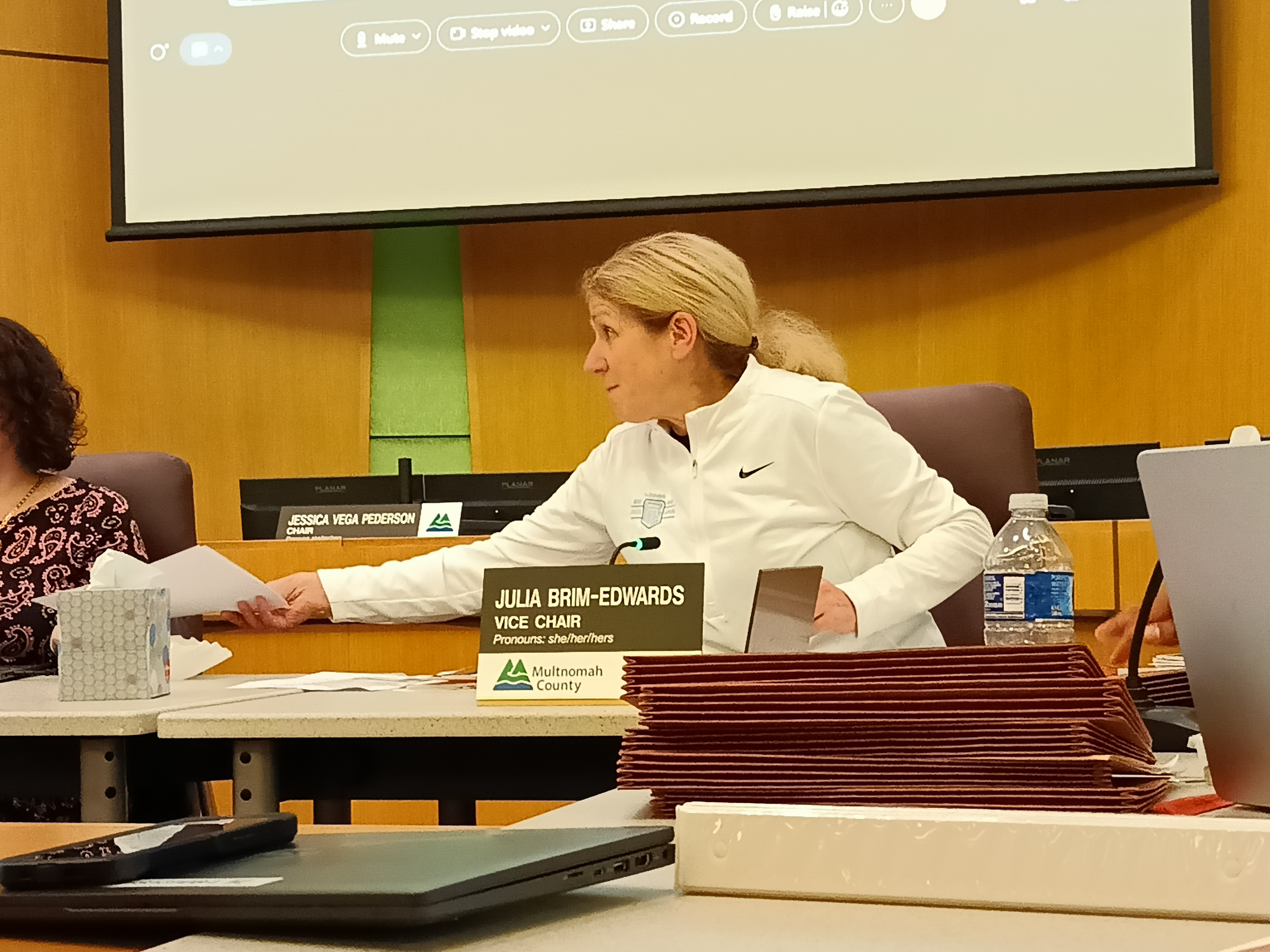
City Council to save Parks funding in last minute vote with Police Budget “Uncrease”


Portland, OR - On Thursday representatives from over 50 climate justice groups were joined by dozens of community members as they rallied at Multnomah County headquarters to signal their opposition to proposed budget cuts to the Office of Sustainability.
These cuts would mean the elimination of key programs that reduce pollution, protect against climate disasters, and hold fossil fuel corporations for their role in the climate crisis.
These corporations include Exxon Mobil who is being sued by Multnomah County for the dozens of residents who died during the 2021 Heat-Dome.
Meghan Moyer, Shannon Singleton, and Julia Brim-Edwards are the commisoners making the proposed cuts which would total $1,017,243.

Both speakers and attendees emphasized these programs role not just in sustainability but equity aswell. Sam, a member of Feed em' Freedom, a program that uplifts black farmers and food security, mentioned his program was one of the many of the line. He would add that he didn't realize the “wide reaching implications” of the cuts until he heard from other groups outside the building.
Jona Davis, Vice President of the Portland NAACP, stated that she felt the Office of Sustainability was one of the few equity programs that wasn't tokenizing. “I decided to be a part of this program because I saw they were about the business not the talk!” she would say during a passionate speech calling for the proposed cuts to be overturned.
“Climate change and social injustice are symptoms of the same problem. Our economy and political systems are designed to exploit human and natural capital for the purposes of generating power and wealth.” - Cherice Bock, Climate Policy Director at 350PDX
“Urban heat islands and atmospheric rivers shape how I navigate our community.” Cassie Wilson mentioned in her speech, who utilizes a mobility scooter to get around.
She added that “climate justice intersects with all other issues, including housing and homelessness.” A statement that would join many others who claim that climate resiliency and energy justice are proactive measures that prevent some people from losing housing in the first place.
“As a disabled person all I can think about were the years and years of stories I've seen of other people like me being left behind in climate disasters across the country and the world. I was terrified of joining those statistics” - Cassie Wilson, Transportation Policy Manager at 1000 Friends of Oregon.
The community also overwhelmingly voiced how responsive the program was to their voices. Lynn Handlin with Extinction Rebellion told United Vision News in a comment that “Everything they do they do in collaboration with other folks. The county keeps saying they want equity. This program is not just words about equity, its ACTION”
“ACollaborative governance is the only way we will see our way out of the climate crisis, and the Office of Sustainability strives for this in everything they do.” - Annabelle Rousseau, Climate Advocacy Coordinator for Verde.
The attendees then filed into the county building, filling the committee meeting room with a sea of matching red shirts. The Office of Sustainability Director John Wasiutynski would then give a detailed testimony to the commission, highlighting the office's crucial work.
These cuts do not come in a vacuum; they mimic the attacks of equity and sustainability seen at a federal level by the Trump regime. To put it simply, these cuts to widely popular climate equity services is directly akin to DOGE in both ethics and practice. Like many of cuts made by so-called the Department of Government Efficiency, the cuts proposed by the county commissions will likely have significant long-term economic consequences.